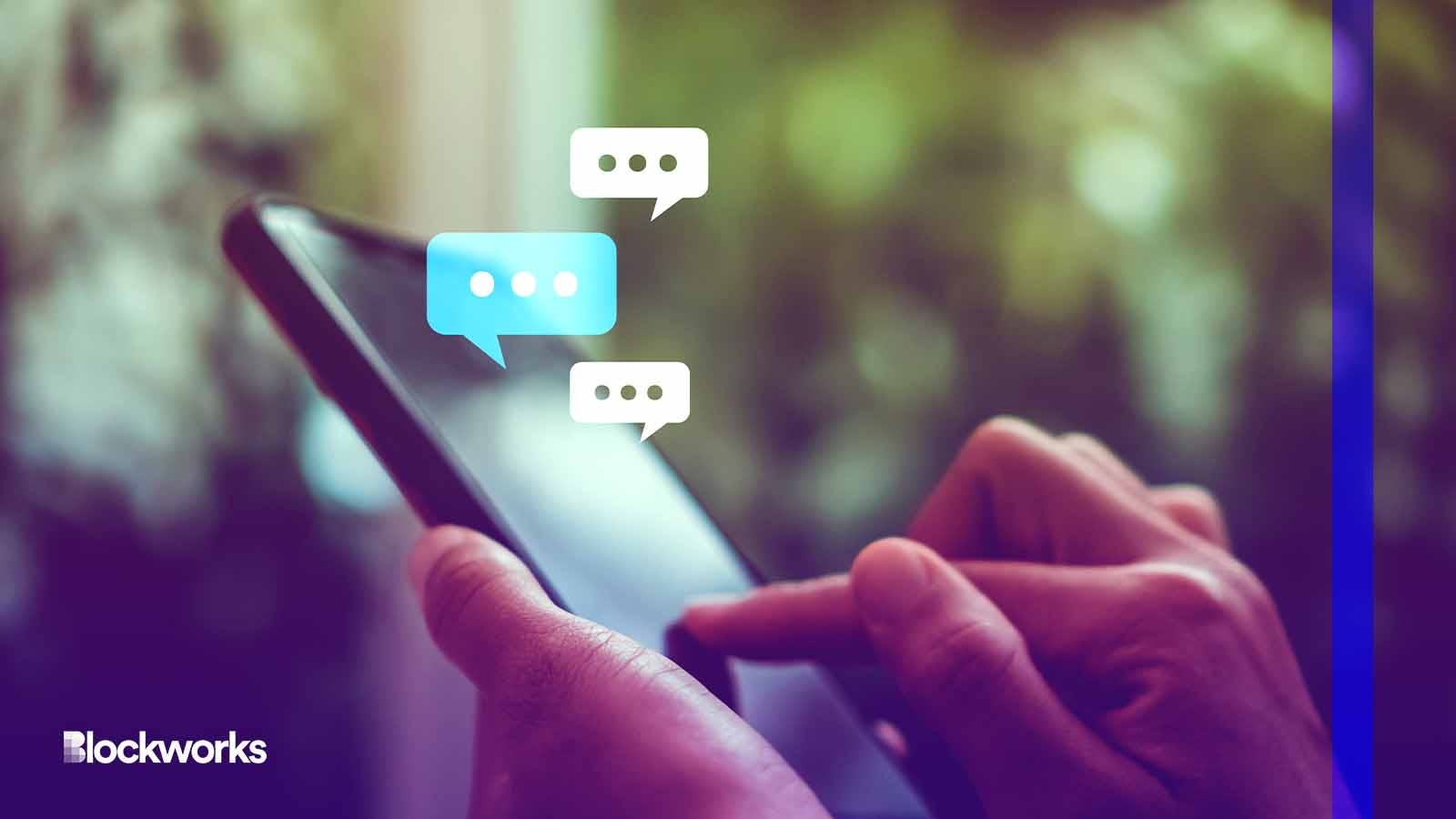Push Protocol v2 is out with new ways to monetize Web3 communication
Push Protocol recently introduced a similarly-named competitor to Twitter Spaces called Push Spaces

antstang/Shutterstock modified by Blockworks
Push Protocol has launched the second version of its peer-to-peer wallet messaging service, adding two key features to increase the application’s monetization capabilities.
Push, formerly known as the Ethereum Push Notification Service, now has a new setting called incentivized chat requests. When the feature is enabled, influencers can charge their fans a set one-time fee in PUSH tokens for the opportunity to chat with them.
“We believe Push v2 unlocks new opportunities for influencers, experts and public figures to generate value from their communities. The launch of Incentivized Chat Requests is a milestone in our mission to decentralize social media,” Push co-founder Harsh Rajat said in a statement exclusively shared with Blockworks.
For now, incentivized chat requests will only be available on the Ethereum chain, but Push told Blockworks that multichain support will be integrated in future versions of its smart contracts.
For users looking for a more community-oriented way to take part in the monetization of Push, they have the option to participate in the newly-released Push Fee Pool.
Rajat called the fee pool “a big step towards democratizing an open, Web3 communication network.”
According to Rajat and Push’s tokenomics, the fee pool will go toward whichever premium features Push is developing. “Super users” of the chat and notifications services will be charged in PUSH tokens, but in return, they’ll get more storage and access to those premium features.
Rajat equated this development to Telegram Premium because these fees are being charged to individual protocols who set up social channels.
Users can also stake their tokens in the core contract and receive rewards from the fee pool, Rajat said.
Push, which launched on the Ethereum network in January 2022, has spent the last few months upgrading its platform to make it more reminiscent of Web2 communication apps such as WhatsApp or Telegram.
In an attempt to ride the wave of Twitter Spaces, Push unveiled a similarly-named feature on its platform called Push Spaces at the EthCC conference in Paris.
And in April, Push dropped a wallet-to-wallet video chatting capability, something it originally talked about in its 2020 white paper.
Get the news in your inbox. Explore Blockworks newsletters:
- The Breakdown: Decoding crypto and the markets. Daily.
- 0xResearch: Alpha in your inbox. Think like an analyst.






